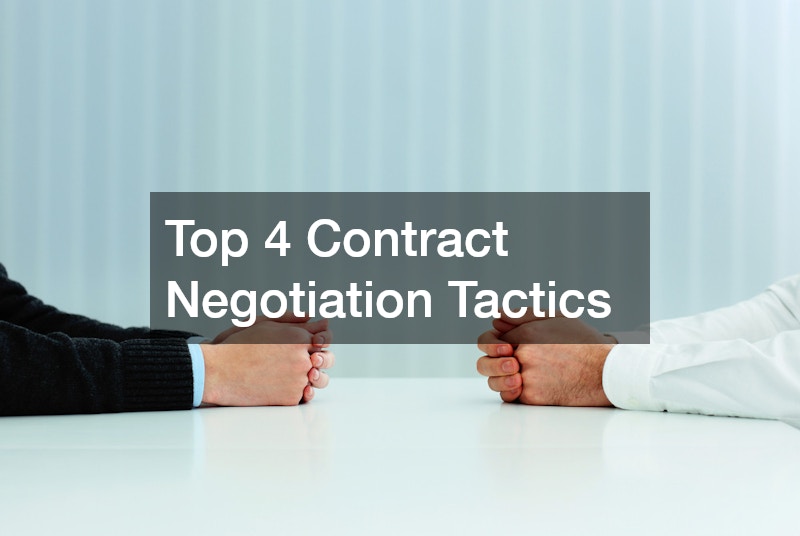
Understanding contract negotiation tactics is crucial for achieving favorable outcomes in any agreement. Working with an experienced contract negotiation lawyer can provide valuable insight and protection during the process. The following sections will explore some of the most effective strategies used by professionals.
What are the essential contract negotiation tactics?
Understand Your Objectives
Clarifying what you want from the negotiation and setting your priorities is the first step to success. Knowing your objectives helps you stay focused and avoid unnecessary diversions during discussions. When your goals are clear, it becomes easier to articulate your demands and expectations. This clarity also assists in evaluating the offers from the opposing party against your objectives. In many cases, negotiators falter due to ambiguous goals, which can lead to unsatisfactory outcomes. Defining what constitutes success elevates your negotiation game and guides all your strategic moves.
Research and Preparation
Gathering all necessary information beforehand can provide a strong foundation and an advantage during discussions. Knowledge about the subject matter, including legal aspects and precedent cases, arms you with confidence. The more informed you are, the more effectively you can counter objections and present logical arguments. Being thoroughly prepared enables you to anticipate the other party’s moves and adjust your strategies accordingly. Research also includes understanding the cultural and business context of the other party, which can offer invaluable insights. By entering negotiations well-prepared, you stand a better chance of steering discussions in your favor.
How do I handle a competitive negotiator?
Stay Calm and Professional
Maintaining composure ensures that the negotiation stays productive and prevents emotions from escalating conflicts. Displays of anger or frustration can derail dialogues and reduce your leverage. Remaining calm allows you to assess the situation objectively and maintain clear communication. A professional demeanor can also influence the other party to respond similarly, promoting a more constructive negotiation environment. The old adage ‘cooler heads prevail’ holds particularly true in negotiations, where emotional outbursts can have lasting impacts. By keeping your emotions in check, you create a space for logical reasoning and solution-oriented discussion.
Leverage Objective Standards
Using data and factual evidence helps ground the negotiation and shifts the conversation away from personal bias. Objective standards serve as benchmarks that both parties can agree upon to frame discussions. When you introduce factual data, it becomes easier to justify your positions and deter unfounded arguments. Statistics and industry standards often add weight to your proposals, making them harder to dismiss. In addition, referencing objective information enables negotiators to focus on what is fair and reasonable. This strategy minimizes disputes born from subjective opinions and steers engagements towards quantifiable outcomes.
What should I do if negotiations reach a deadlock?
Consider Alternative Solutions
Exploring different approaches or compromises can often break a stalemate and lead to agreements beneficial to both parties. Creativity in crafting solutions demonstrates a willingness to adapt and collaborate. Introduce potential alternatives with open-ended questions to invite dialogue and encourage the other party’s input. By exploring diverse options, you may uncover hidden opportunities for mutual gain. Alternatives should align with the core objectives while offering enough flexibility to absorb adjustments. A creative mindset in negotiations showcases your problem-solving ability and commitment to reaching an agreement.
Bring in a Mediator
Sometimes, involving a neutral third party can help facilitate resolution when discussions have stalled. Mediators are skilled at identifying common ground and diffusing tension, which can be pivotal in overcoming deadlocks. The presence of a mediator often encourages transparency and openness, fostering a more collaborative atmosphere. By allowing an impartial expert to guide the process, parties can rediscover pathways to compromise. While mediators are not a panacea for all negotiation issues, their expertise can be the key to unlocking new avenues. Their impartial perspective ensures that both parties’ viewpoints are equally considered, leading to more balanced outcomes.
How do I build long-term relationships with contract parties?
Focus on Win-Win Outcomes
Striving for agreements that benefit both parties lays the foundation for sustainable partnerships. A win-win approach emphasizes collaboration over competition, fostering goodwill and trust. When both parties perceive value in the final agreement, they are more likely to uphold commitments and engage positively in future negotiations. Long-term relationships often result from deals that acknowledge the needs and constraints of each side. Additionally, a win-win mindset underscores the understanding that successful negotiations do not have to produce winners and losers. Embracing mutual benefit as a guiding principle ensures continuity and satisfaction in contractual relationships.
Communicate Effectively
Ensuring open and honest communication fosters trust and reduces misunderstandings in future dealings. Clarity and transparency in discourse encourage a more engaging and cooperative negotiation process. Effective communication involves active listening and articulation of ideas in ways that resonate with the other party. By prioritizing understanding, both parties can address concerns and minimize conflicts before they arise. Moreover, maintaining a consistent line of communication post-negotiation strengthens the relationship and builds a foundation for future interactions. Proactive updates and responsiveness underscore your commitment to partnership and shared objectives.
Mastering these contract negotiation tactics can greatly enhance your ability to secure favorable terms while maintaining positive relationships. With practice and the right approach, any negotiator can improve their effectiveness.




